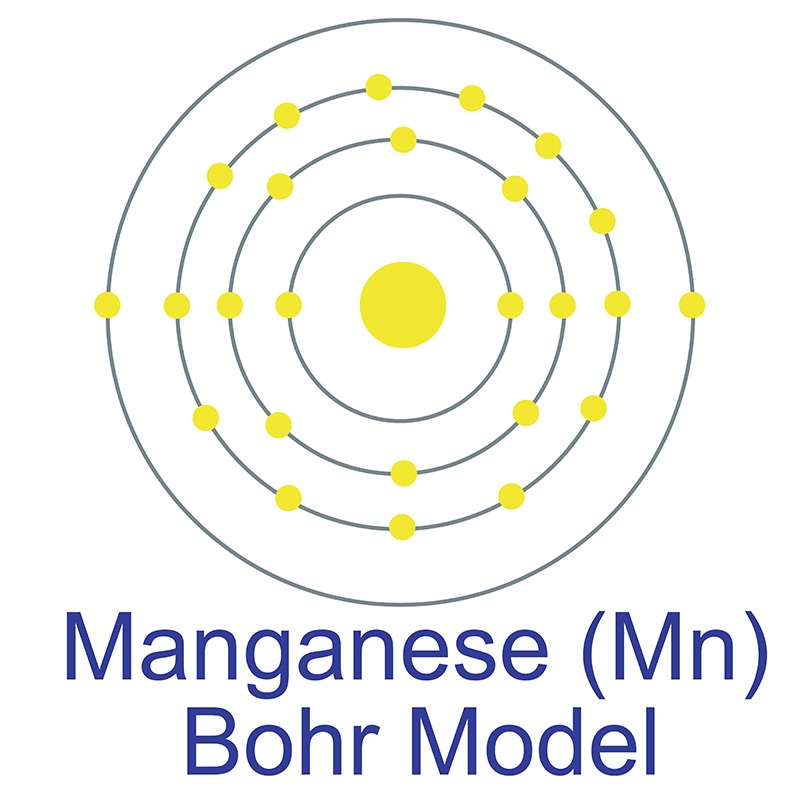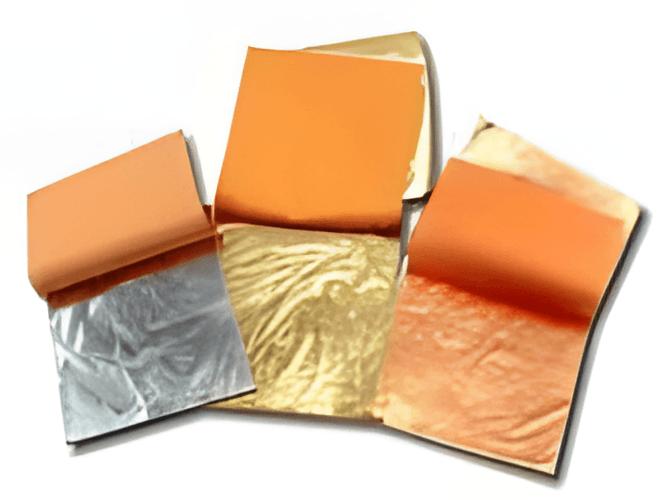SECTION 1. IDENTIFICATION
Product Name: Manganese Microfoil
Product Number: All applicable American Elements product codes, e.g. MN-M-02-MF
, MN-M-025-MF
, MN-M-03-MF
, MN-M-035-MF
, MN-M-04-MF
, MN-M-05-MF
CAS #: 7439-96-5
Relevant identified uses of the substance: Scientific research and development
Supplier details:
American Elements
10884 Weyburn Ave.
Los Angeles, CA 90024
Tel: +1 310-208-0551
Fax: +1 310-208-0351
Emergency telephone number:
Domestic, North America: +1 800-424-9300
International: +1 703-527-3887
SECTION 2. HAZARDS IDENTIFICATION
Classification of the substance or mixture
The substance is not classified according to the Globally Harmonized System (GHS).
Classification according to Directive 67/548/EEC or Directive 1999/45/EC N/A
Information concerning particular hazards for human and environment: N/A
Label elements
Labelling according to EU guidelines:
Observe the general safety regulations when handling chemicals
Classification system
HMIS ratings (scale 0-4)
(Hazardous Materials Identification System)
Health (acute effects) = 0
Flammability = 0
Reactivity = 0
Other hazards
Results of PBT and vPvB assessment
PBT: N/A
vPvB: N/A
SECTION 3. COMPOSITION/INFORMATION ON INGREDIENTS
Substances
CAS No. / Substance Name:
7439-96-5 Manganese
Identification number(s):
EC number: 231-105-1
SECTION 4. FIRST AID MEASURES
Description of first aid measures
General information No special measures required.
If inhaled: Seek medical treatment in case of complaints.
In case of skin contact: Generally the product does not irritate the skin.
In case of eye contact:
Rinse opened eye for several minutes under running water. If symptoms persist, consult a doctor.
If swallowed:
If symptoms persist consult doctor.
Information for doctor
Most important symptoms and effects, both acute and delayed
No data available
Indication of any immediate medical attention and special treatment needed
No data available
SECTION 5. FIREFIGHTING MEASURES
Extinguishing media
Suitable extinguishing agents Special powder for metal fires. Do not use water.
For safety reasons unsuitable extinguishing agents Water
Special hazards arising from the substance or mixture
In case of fire, the following can be released:
Metal oxide fume
Advice for firefighters
Protective equipment: No special measures required.
SECTION 6. ACCIDENTAL RELEASE MEASURES
Personal precautions, protective equipment and emergency procedures Not required.
Environmental precautions:
Do not allow material to be released to the environment without official permits.
Methods and materials for containment and cleanup: Pick up mechanically.
Reference to other sections
See Section 7 for information on safe handling
See Section 8 for information on personal protection equipment.
See Section 13 for disposal information.
SECTION 7. HANDLING AND STORAGE
Handling
Precautions for safe handling
Keep container tightly sealed.
Store in cool, dry place in tightly closed containers.
Information about protection against explosions and fires: No special measures required.
Conditions for safe storage, including any incompatibilities
Requirements to be met by storerooms and receptacles: No special requirements.
Information about storage in one common storage facility: No data available
Further information about storage conditions:
Keep container tightly sealed.
Store in cool, dry conditions in well-sealed containers.
Specific end use(s) No data available
SECTION 8. EXPOSURE CONTROLS/PERSONAL PROTECTION
Control parameters
Components with limit values that require monitoring at the workplace:
7439-96-5 Manganese (100.0%)
PEL () Short-term value: C 5* ** mg/m3
as Mn *and inorganic compounds **fume
REL () Short-term value: 3* ** mg/m3
Long-term value: 1* ** mg/m3
as Mn *and inorganic compounds **fume
TLV () (0.2) NIC-0.02* NIC-0.2* mg/m3
as Mn;+ inorg. comp.;*resp.,**inh. fraction:NIC-A4
Additional information: No data
Exposure controls
Personal protective equipment
Follow typical protective and hygienic practices for handling chemicals.
Breathing equipment: Not required.
Protection of hands: Not required.
Eye protection: Safety glasses
Body protection: Protective work clothing.
SECTION 9. PHYSICAL AND CHEMICAL PROPERTIES
Information on basic physical and chemical properties
Appearance:
Form: Solid in various forms
Color: Grey
Odor: No data available
Odor threshold: No data available.
pH: N/A
Melting point/Melting range: 1246°C (2275 °F)
Boiling point/Boiling range: 2095°C (3803 °F)
Sublimation temperature / start: No data available
Flammability (solid, gas) No data available.
Ignition temperature: No data available
Decomposition temperature: No data available
Autoignition: No data available.
Explosion limits:
Lower: No data available
Upper: No data available
Vapor pressure at 20°C (68 °F): 0 hPa
Density at 20°C (68 °F): 7.3 g/cm3 (60.919 lbs/gal)
Relative density No data available.
Vapor density N/A
Evaporation rate N/A
Segregation coefficient (n-octonol/water): No data available.
Viscosity:
Dynamic: N/A
Kinematic: N/A
Other information No data available
SECTION 10. STABILITY AND REACTIVITY
Reactivity
Chemical stability
Thermal decomposition / conditions to be avoided:
Decomposition will not occur if used and stored according to specifications.
Possibility of hazardous reactions No dangerous reactions known
Incompatible materials: No data available
Hazardous decomposition products: Metal oxide fume
SECTION 11. TOXICOLOGICAL INFORMATION
Information on toxicological effects
Acute toxicity:
Primary irritant effect:
on the skin: Powder: irritant effect
on the eye: Powder: irritant effect
Sensitization: No sensitizing effects known.
Additional toxicological information:
To the best of our knowledge the acute and chronic toxicity of this substance is not fully known.
EPA-D: Not classifiable as to human carcinogenicity: inadequate human and animal evidence of carcinogenicity or no data are available.
The Registry of Toxic Effects of Chemical Substances (RTECS) contains acute and/or other multiple dose toxicity data for components in this product.
The Registry of Toxic Effects of Chemical Substances (RTECS) contains reproductive and/or mutation data for components in this product.
The Registry of Toxic Effects of Chemical Substances (RTECS) contains tumorigenic and/or carcinogenic and/or neoplastic data for components in this product.
SECTION 12. ECOLOGICAL INFORMATION
Toxicity
Acquatic toxicity: No data available
Persistence and degradability No data available
Behavior in environmental systems:
Bioaccumulative potential No data available
Mobility in soil No data available
Additional ecological information:
General notes:
Do not allow undiluted product or large quantities of it to reach groundwater, water courses, or sewage systems.
Do not allow material to be released to the environment without official permits.Results of PBT and vPvB assessment
PBT: N/A
vPvB: N/A
Other adverse effects No data available
SECTION 13. DISPOSAL CONSIDERATIONS
Waste treatment methods
Recommendation Consult official regulations to ensure proper disposal.
Uncleaned packagings:
Recommendation: Disposal must be made according to official regulations.
SECTION 14. TRANSPORT INFORMATION
UN-Number
DOT, ADR, ADN, IMDG, IATA N/A
UN proper shipping name
DOT, ADR, ADN, IMDG, IATA N/A
Transport hazard class(es)
DOT, ADR, ADN, IMDG, IATA
Class N/A
Packing group
DOT, ADR, IMDG, IATA N/A
Environmental hazards:
Marine pollutant: No
Special precautions for user N/A
Transport in bulk according to Annex II of
MARPOL73/78 and the IBC Code N/A
SECTION 15. REGULATORY INFORMATION
Safety, health and environmental regulations/legislation specific for the substance or
mixture
Product related hazard informations:
Observe the general safety regulations when handling chemicals
National regulations
All components of this product are listed in the U.S. Environmental Protection Agency Toxic Substances Control Act Chemical substance Inventory.
All components of this product are listed on the Canadian Domestic Substances List (DSL).
Information about limitation of use:
For use only by technically qualified individuals.
This product is subject to the reporting requirements of section 313 of the Emergency
Planning and Community Right to Know Act of 1986 and 40CFR372.
Chemical safety assessment: A Chemical Safety Assessment has not been carried out.
SECTION 16. OTHER INFORMATION
Safety Data Sheet according to Regulation (EC) No. 1907/2006 (REACH). The above information is believed to be correct but does not purport to be all inclusive and shall be used only as a guide. The information in this document is based on the present state of our knowledge and is applicable to the product with regard to appropriate safety precautions. It does not represent any guarantee of the properties of the product. American Elements shall not be held liable for any damage resulting from handling or from contact with the above product. See reverse side of invoice or packing slip for additional terms and conditions of sale. COPYRIGHT 1997-2022 AMERICAN ELEMENTS. LICENSED GRANTED TO MAKE UNLIMITED PAPER COPIES FOR INTERNAL USE ONLY.
 The number of electrons in each of Manganese's shells is [2, 8, 13, 2] and its electron configuration is [Ar] 3d5 4s2. The manganese atom has a radius of 127 pm and a Van der Waals radius of 197 pm. Manganese was first discovered by Torbern Olof Bergman in 1770 and first isolated by Johann Gottlieb Gahn in 1774. In its elemental form, manganese has a silvery metallic appearance.
The number of electrons in each of Manganese's shells is [2, 8, 13, 2] and its electron configuration is [Ar] 3d5 4s2. The manganese atom has a radius of 127 pm and a Van der Waals radius of 197 pm. Manganese was first discovered by Torbern Olof Bergman in 1770 and first isolated by Johann Gottlieb Gahn in 1774. In its elemental form, manganese has a silvery metallic appearance.  It is a paramagnetic metal that oxidizes easily in addition to being very hard and brittle. Manganese is found as a free element in nature and also in the minerals pyrolusite, braunite, psilomelane, and rhodochrosite. The name Manganese originates from the Latin word mangnes, meaning "magnet."
It is a paramagnetic metal that oxidizes easily in addition to being very hard and brittle. Manganese is found as a free element in nature and also in the minerals pyrolusite, braunite, psilomelane, and rhodochrosite. The name Manganese originates from the Latin word mangnes, meaning "magnet." Thermal and Electron Beam (E-Beam) Evaporation, Low Temperature Organic Evaporation, Atomic Layer Deposition (ALD),
Thermal and Electron Beam (E-Beam) Evaporation, Low Temperature Organic Evaporation, Atomic Layer Deposition (ALD), 
